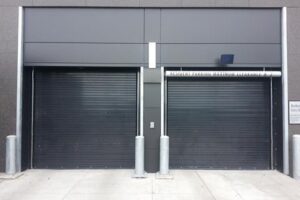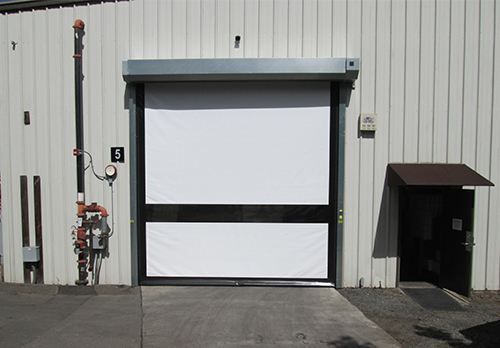
How Weather Affects Garage Door Performance — and How to Beat It
 Weather and Garage Door Performance: What Every Homeowner Should Know
Weather and Garage Door Performance: What Every Homeowner Should Know
From sweltering summers to freezing winters, weather can have a significant impact on garage door performance. Many homeowners are unaware of how changing temperatures, humidity, and storms can cause malfunctions, noise, or even complete breakdowns. A reliable garage door isn’t just about convenience—it’s crucial for security, insulation, and energy efficiency. Whether it’s extreme heat expanding your panels or snow interfering with your sensors, it’s vital to know how to protect your door. In this guide, we’ll explore the effects of various weather conditions and show you how to optimize garage door performance all year round.
How Cold Weather Slows Down Garage Door Systems
Cold temperatures can drastically reduce garage door performance, especially in older or poorly maintained systems. Freezing metal components and stiff lubricants can cause your garage door to open slower or not at all.
Cold can also affect the springs and opener mechanisms, making them brittle and more prone to failure. Ice buildup around the seals and tracks only adds to the problem, often causing your door to jam or misalign.
Cold Weather Challenges and Solutions:
-
Lubricate with a silicone-based product designed for cold climates
-
Replace old garage door springs before winter hits
-
Keep the area around the bottom seal free from snow and ice
-
Check the opener’s responsiveness and battery power
-
Install a heater or insulation kit if needed
-
Schedule winter maintenance with a garage door expert
Proper preparation before winter can greatly improve your garage door performance and prevent costly emergency repairs. Taking simple steps can help your door remain responsive and safe, even during deep freezes.
Why Humidity and Moisture Are Silent Killers
Humidity causes garage door performance to degrade over time due to rust, swelling, and material breakdown. Wood doors can absorb moisture and warp, while steel doors are vulnerable to corrosion if not properly treated.
Moisture also affects the electronic components of openers and safety sensors. If sensors fog up or short-circuit, it could prevent your door from closing properly, leaving your garage exposed.
This is particularly true in coastal or storm-prone regions where salt in the air accelerates rust. Routine inspections and preventative care are your best defense.
The Effects of Heat on Garage Door Components
Hot temperatures can also take a toll on garage door performance. Heat causes metal components to expand, which may misalign your tracks or add stress to your opener.
Rubber seals and gaskets tend to dry out and crack in extreme heat. This compromises the insulation and allows dust or insects to enter the garage. Paint and finish can also peel or bubble under prolonged sun exposure.
Protecting Against Heat Damage:
-
Use UV-resistant paint on wood or steel doors
-
Replace weather seals annually
-
Insulate the garage to keep internal temps stable
-
Keep the opener out of direct sunlight if possible
-
Choose a garage door with a heat-resistant finish
-
Inspect the tracks and rollers for warping or sticking
Choosing a high-quality, weather-resistant model is essential to maintaining top garage door performance in hot regions. Regular seasonal maintenance keeps your door operating smoothly despite the heat.
The Impact of Rain and Flooding on Garage Safety
Water intrusion is one of the biggest threats to garage door performance, especially if your home is in a flood-prone area. Heavy rain can damage the bottom seal, sensors, and internal components of the opener system.
Waterlogged garage doors may also begin to sag or lose insulation efficiency. If flooding reaches your opener motor, it can cause short circuits or total system failure.
Rain-Ready Garage Door Tips:
-
Install a raised threshold or water barrier
-
Upgrade to a weatherproof garage door bottom seal
-
Consider a smart garage system that alerts you to water leaks
-
Keep drains and surrounding areas clear of debris
-
Use flood-resistant materials in construction
-
Perform regular visual inspections after storms
These steps will significantly extend the life and garage door performance of your system during the rainy season. Always act fast if you see water pooling near your garage.
High Wind and Storms: Strength Matters
High winds from storms or hurricanes can test the integrity of your garage door. Poor garage door performance during storms can result in blow-ins or frame separation, endangering your home’s structure.
Most building codes in storm-prone areas now require wind-rated doors that can withstand certain pressure levels. Upgrading to an impact-rated door improves safety, especially during hurricane season.
Choose a garage door with reinforced tracks, heavy-duty hinges, and multiple locking points. These features help it withstand gusts and protect your home’s interior.
Windproofing Techniques for Better Durability
Windproofing isn’t just about the door’s material—it’s about the complete system. Doors that flex or rattle in high winds need reinforcement. This can be achieved with horizontal struts or bracing kits.
Garage door openers should also be upgraded for high tension systems to maintain reliable garage door performance during windstorms. Reinforced side tracks and anchoring can prevent track separation or dislodgement.
Windproof Garage Door Checklist:
-
Choose a wind-rated model certified for your region
-
Install a reinforcement kit or struts
-
Ensure the opener supports high-tension doors
-
Inspect hinges, rollers, and brackets regularly
-
Seal gaps along the top and bottom for pressure control
-
Keep a backup power system for storm outages
Windproofing not only prevents structural damage but ensures your garage door performance remains consistent when you need it most.
Seasonal Maintenance: The Key to Year-Round Efficiency
Maintaining year-round garage door performance requires a seasonal maintenance routine. Fall and spring are ideal times to check for wear and tear, re-lubricate parts, and inspect weather seals.
This helps catch minor problems before they turn into expensive repairs. A simple tune-up can also extend the life of your garage door system and ensure it works when it matters most.
You don’t need to be an expert to perform basic maintenance. But if you notice unusual noise, resistance, or slowness, call a professional.
Smart Garage Upgrades for All-Weather Functionality
Modern smart systems help optimize garage door performance in all weather conditions. Smart sensors, Wi-Fi openers, and automated controls make it easier to monitor and adjust your door remotely.
They also offer real-time alerts, temperature readings, and weather integrations. This means you can receive a warning if your garage door is open during a storm or if internal temperatures fall below freezing.
Investing in smart tech improves not only convenience but also home security and efficiency. Look for compatibility with your current home automation system.
Final Thoughts: Don’t Let Weather Win
Understanding how weather affects garage door performance is crucial to avoiding costly damage and maximizing door lifespan. From moisture and freezing temperatures to extreme heat and high winds, every season brings new challenges.
Choosing weather-resistant materials, performing seasonal maintenance, and upgrading to modern technology will ensure your garage door stays reliable and secure. Weatherproofing is not a luxury—it’s a smart investment in your home’s future.
Remember, your garage is often the largest entry point to your home. Keep it protected with the right tools, habits, and systems in place.
Need Professional Garage Door Support?
At Williams Garage Doors, we specialize in optimizing garage door performance for every season. Whether you’re battling ice, wind, heat, or storms, we have the tools and experience to protect your garage.
📞 Call us in PA at 215-792-4424
📞 Call us in NJ at 856-606-2937
📧 Email us at williamsgaragedoors1@gmail.com
🌐 Visit our site: https://williams-garagedoors.com/
Need tips, guides, or expert service? Let us help you improve your garage door performance—no matter the weather.
For more information, check out resources from the International Door Association (IDA) and the U.S. Consumer Product Safety Commission (CPSC).



